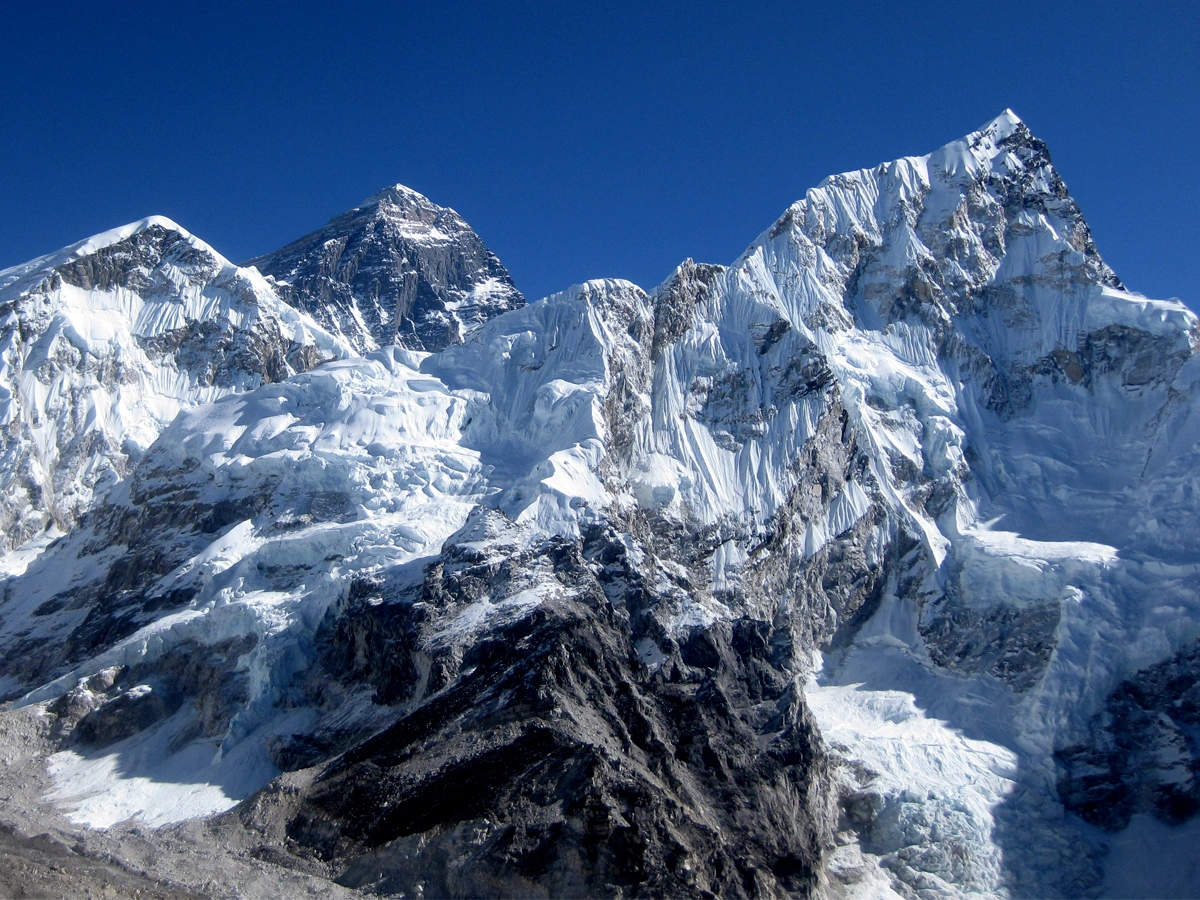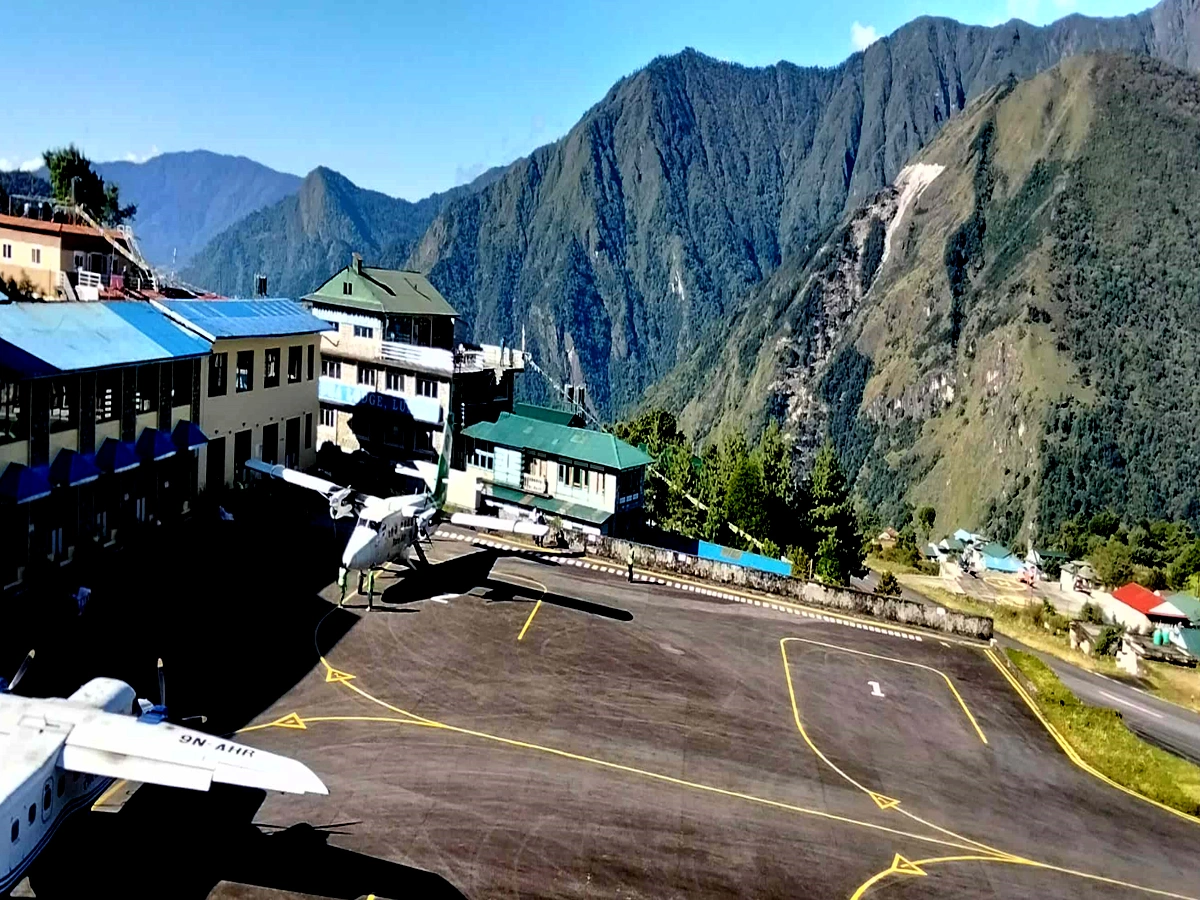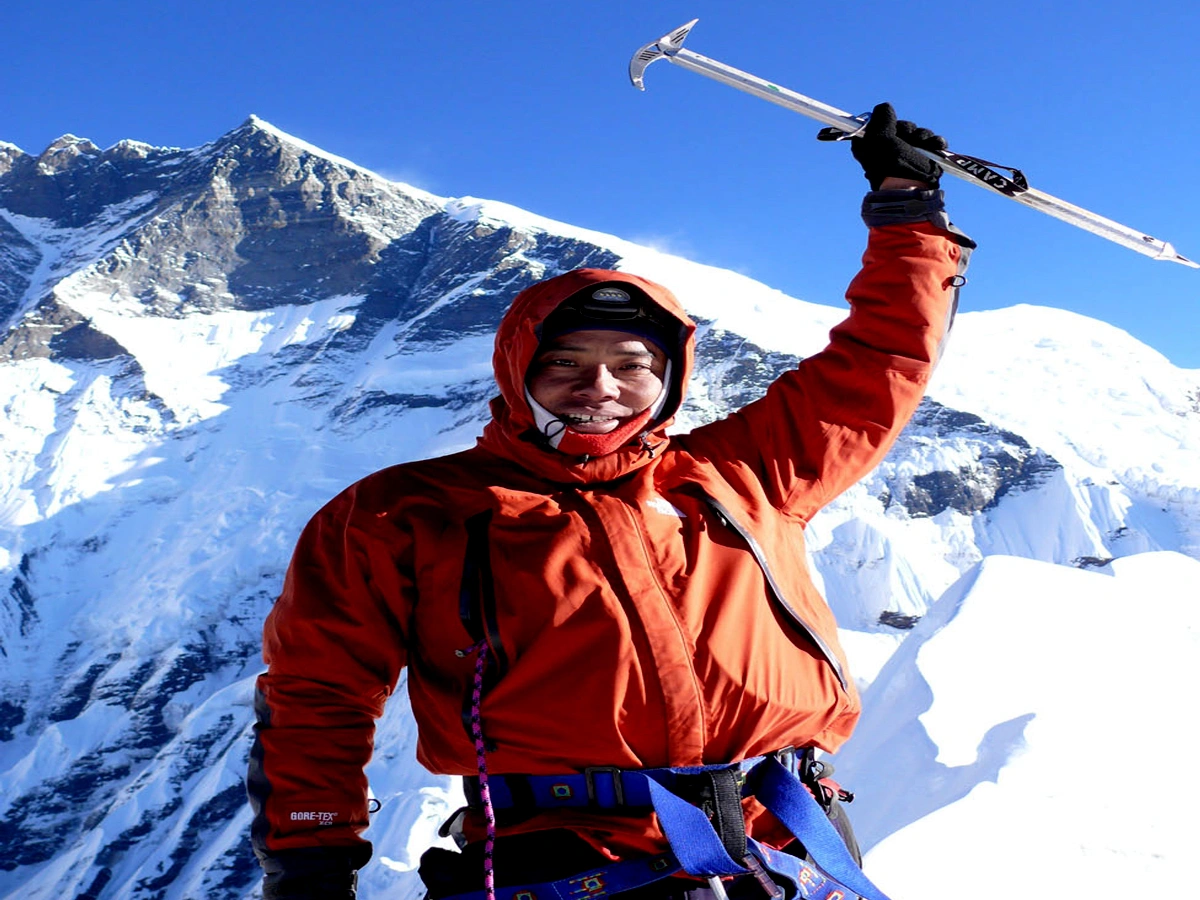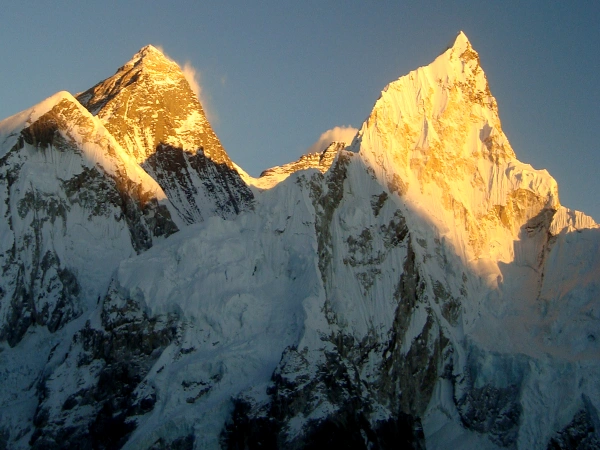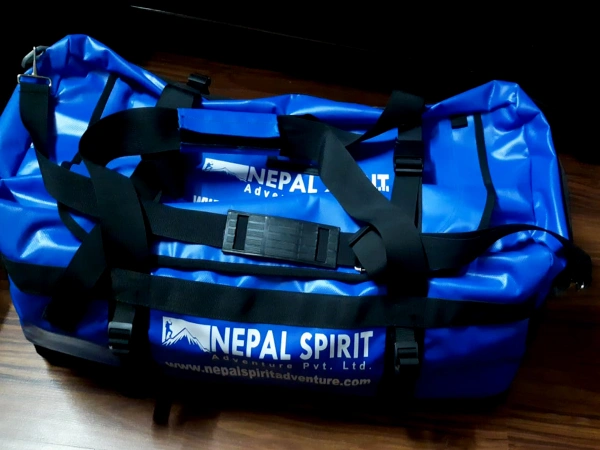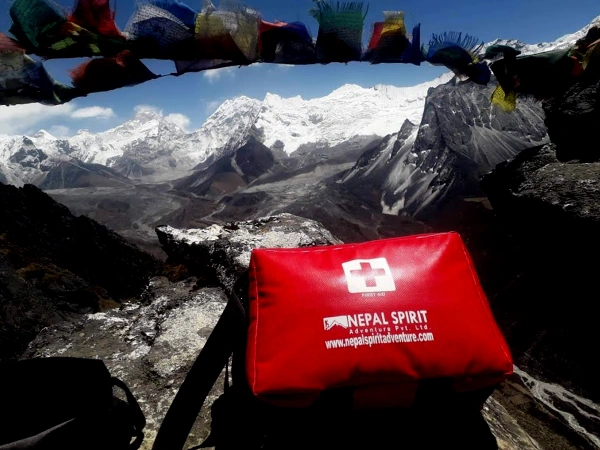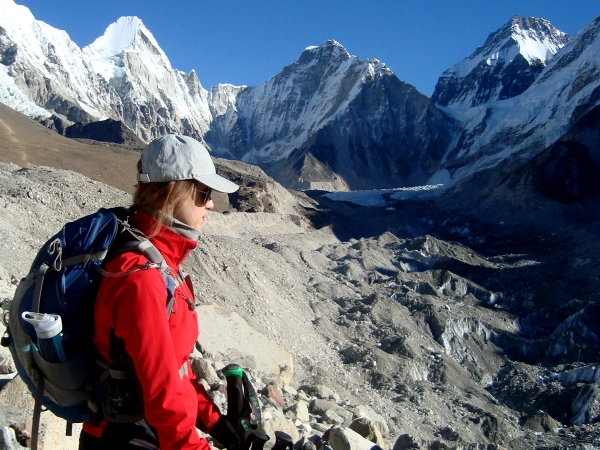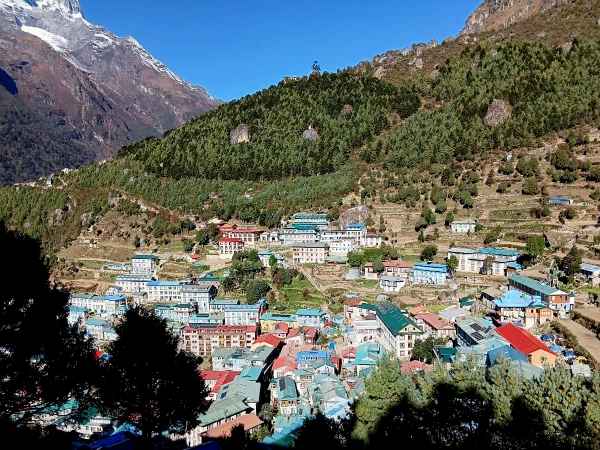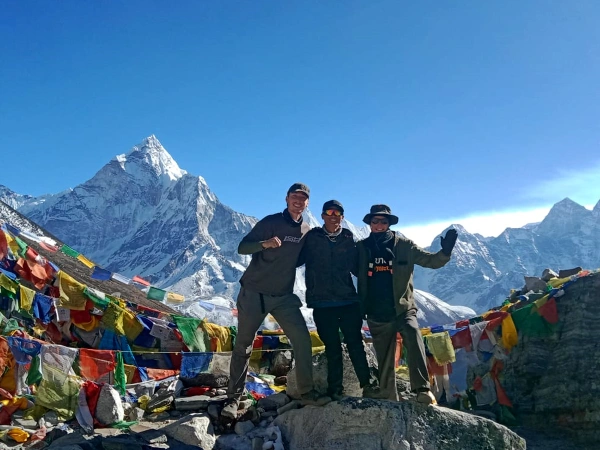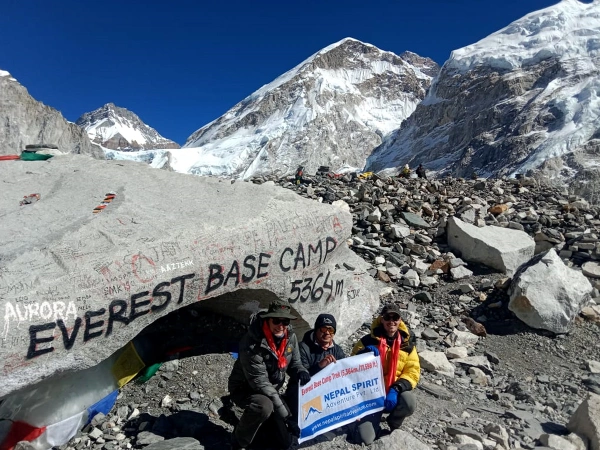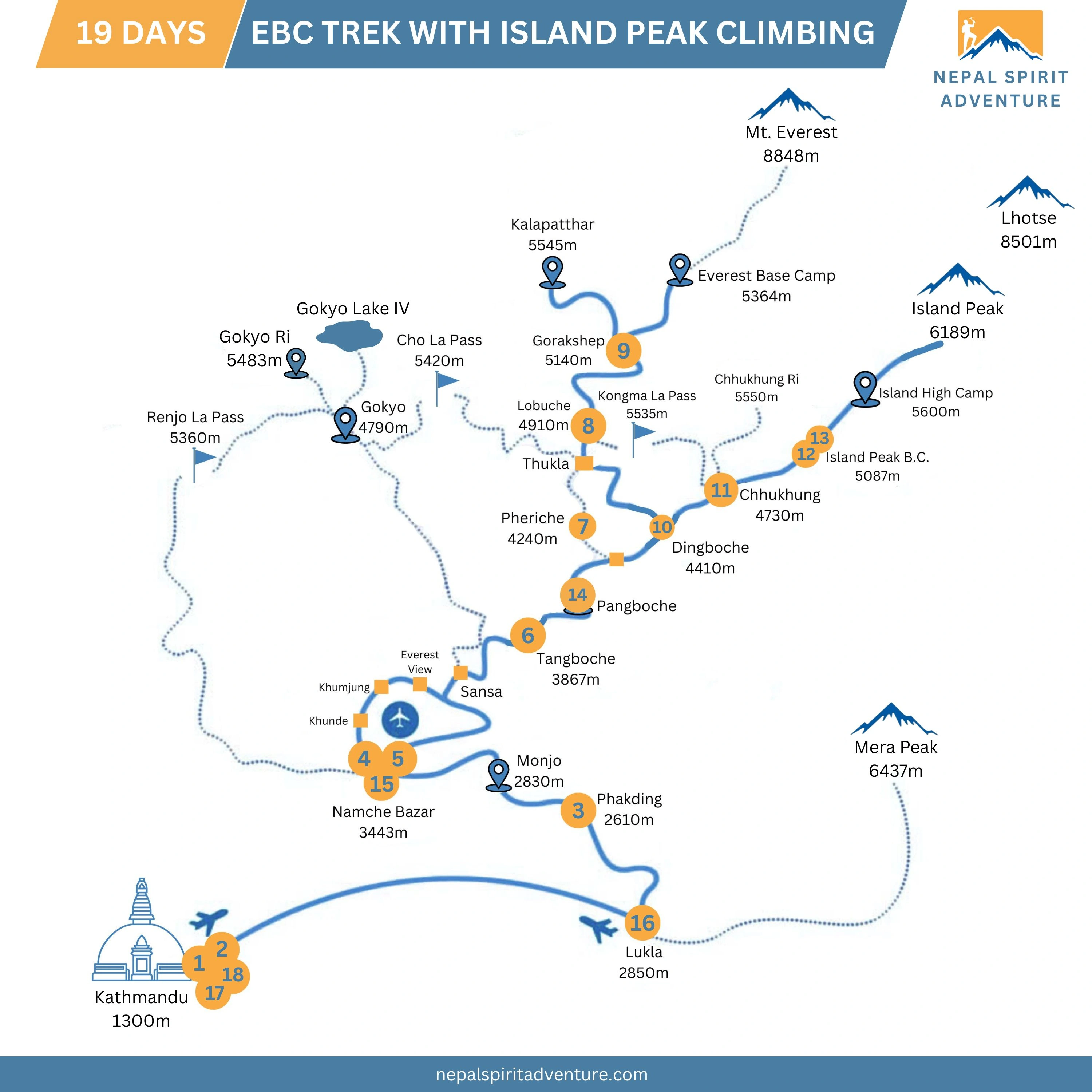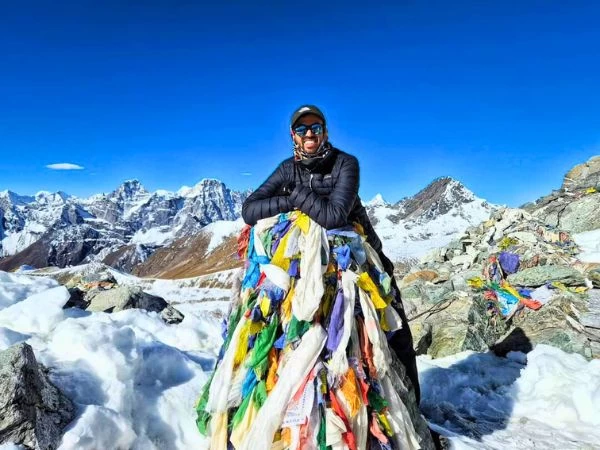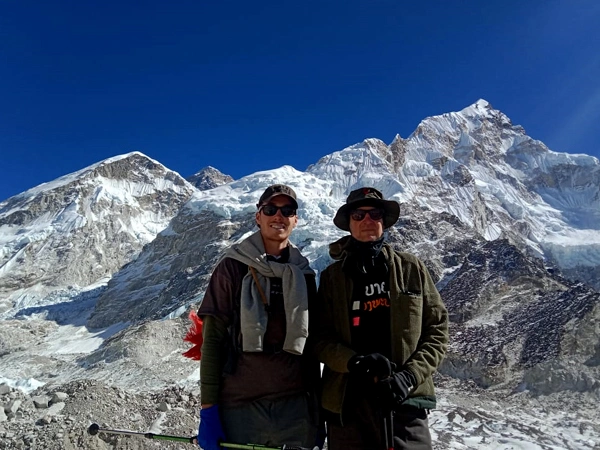Are you looking for an Everest Base Camp Trek with Island Peak Climbing?
We have designed the Everest Base Camp trek and Island Peak Climbing 2026. These trek and peak climbing itineraries are flexible, and we can tailor the trip to meet your travel requirements for a Nepal holiday. Everest Base Trek with Island Peak Climbing offers an unforgettable lifetime adventure, combining a classic climb of Island Peak with the Everest Base Camp trek in the Khumbu region of Nepal.
Our experienced trek guide and climbing guide will lead you to experience the adventure of a lifetime with a memorable and exciting Everest base camp trek and Island peak climb, where you will be amid the world's giant peaks of Everest, Lhotse, Pumori, Nuptse, and Lho-la with tumbling great Icefalls.
The Everest Base Camp (EBC) trek and climbing Island Peak offer stunning views of the world’s highest mountains, including Mt. Everest (8,848m), Mt. Lhotse (8,516m), Mt. Makalu (8,463m), Mt. Nuptse, Pumori, and many more in the Khumbu region. The best mountain views are enjoyed from the summit of Island Peak (Imja Tse).
During the trek and climb, we will have the comfort of cozy lodges and ample opportunity to experience the warmth of Sherpa hospitality and traditional cultural heritage. In addition to trekking and climbing, we will have the chance to visit traditional Sherpa villages and fascinating monasteries that preserve ancient Buddhist customs and ways of life, making this journey to the Everest Base Camp and Island Peak Climb in 2026 a truly memorable experience.
Everest Base Camp Trek with Island Peak Climbing Route 2026
Everest Base Camp Trek: This incredible adventure begins with a scenic flight to Lukla, followed by a journey to the famous Namche Bazaar. Here, we will take a rest day for acclimatization before continuing our ascent toward Everest Base Camp. Along the way, we will pass through several interesting places, including Thyangboche Monastery, Pangboche, Pheriche, and Lobuche villages.
After an amazing time at Everest Base Camp, we will climb Kalapathar for spectacular views of the mountains, including a close-up of Mt. Everest. Once we complete the trek to Everest Base Camp, our next adventure takes us to the Imja Tse Valley for the ascent of Island Peak. The trek will lead us to Chukung and the Island Peak Base Camp.
Island Peak Climbing: This climbing expedition requires some technical skills, including the use of crampons, an ice axe, fixed ropes, a snow bar, and ice screws. To ensure a successful climb, our expert guiding team will provide full support, helping you reach the summit safely. Standing at 6,189 meters (20,305 feet), the top of Island Peak offers breathtaking mountain views and promises to be a memorable highlight of your adventure. Join us for the Everest Trek and Island Peak Climb in 2026!
Everest Trek Island Peak Climbing concludes at Lukla with a panoramic flight back to Kathmandu after a memorable and exciting time around the world's highest mountains with the standard services of Nepal Spirit Adventure and friendly staff and guides.
Meals for EBC Trek and Island Peak Climbing:
While you will be away from the city life, food is important, as per your booking for trekking and Island peak climb, full board meals are included (breakfast, lunch, dinner). We provide food from these local lodges/tea houses as per the choices on the menu. Breakfast and dinner are provided at the same tea house/lodge, while lunch would be on the trail.
Every Tea House serves the traditional Nepali meal Dal Bhat (rice and lentils), as well as a variety of different food items, such as rice, seasonal vegetables, noodles, potatoes, and soups. Some lodge serves Western foods such as pizza, pasta, and French fries. Soft drinks, snacks, and beer are available in most of the Tea Houses' restaurants. A variety of cereals, bread, and egg dishes are generally available for breakfast.
ACCLIMATIZATION
The acclimatization days are the most important for both the Everest trek & Island Peak Climb, before heading to Mount Everest Base Camp at 5,364m and Island Peak Base Camp at 5,200m. A couple of rest-acclimatization days help you reach EBC and Island Peak Base Camp.
All of Nepal Spirit Adventure’s treks are planned with a high degree of awareness of AMS (Acute Mountain Sickness), also known as altitude sickness. Going up to a higher altitude too fast causes a medical condition serious enough to kill.
We understand that for a safe trek, it is essential to allow sufficient time for acclimatization. Sensible planning is therefore required to minimize the risk of AMS. Nepal Spirit Adventure’s itineraries are designed to prevent AMS as much as possible. But it is important to remember that some visitors are more vulnerable than others. Your guides and porters will do their best to assist you throughout the trek.
The Best Time for Island Peak Climbing with Everest Base Camp Trek
The best season to do the Everest Base Camp Island Peak Climbing is in the Spring, from March to June. Autumn- September to December) These are the best months; however, our expert adventure team operates the trek and climb every month of the year.
The trek and climbing require fitness, good trekking boots, warm clothing, an Island Peak climbing equipment sleeping bag, a day pack, sunscreen, and a camera. Our trek and climbing cost included a hotel in Kathmandu lodge and a tent, along with the trekking-climbing part permit, transport, flight, guide, porter, and meals 3 times a day.
We Organize Some Popular Trekking Routes in the Everest Region
We are organizing many popular trekking routes in the Everest-Khumbu region. There are two of the best seasons: Spring (March to May) and Autumn (September to December). More than a thousand trekkers visit the Everest region for their high-altitude trekking & climbing. You may like our following trekking activities on the Everest Trek route.
- 14-day Everest base camp trek
- Everest Three High Passes Trek 21 days
- Everest Base Camp Luxury Trek
- Everest Base Camp Helicopter Trek
